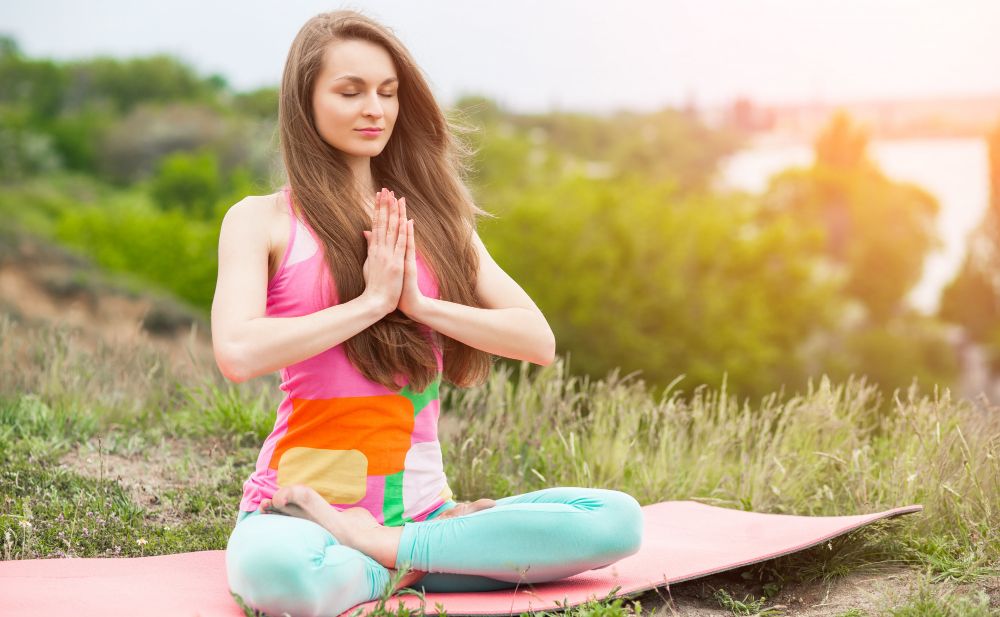Yoga is an ancient practice that has been gaining popularity in recent years, and for good reason. Practising yoga has a variety of benefits for both mental and physical health. From stress relief to improved flexibility, yoga is a great way to enhance overall well-being. In this article, we will explore the benefits of practising yoga and how it can help improve your mental and physical health.
Yoga for Mental Health: Yoga has been shown to have a positive impact on mental health. It helps to reduce stress, anxiety, and depression by promoting relaxation and improving mental clarity. By focusing on the breath and the present moment, yoga can help calm the mind and reduce symptoms of stress and anxiety. Studies have shown that practising yoga regularly can lead to improved mental health and a better quality of life.
Yoga for Physical Health: In addition to the mental health benefits, yoga also has numerous physical health benefits. It can help improve flexibility, balance, and posture, while also increasing strength and endurance. By practising yoga, you can improve your overall fitness and prevent injuries.
Benefits of Yoga: Yoga is a holistic practice that benefits both the mind and body. It promotes a mind-body connection and helps to improve overall well-being. The benefits of practising yoga are many, including:
- Stress relief: Yoga helps to reduce stress and anxiety, leading to a more relaxed state of mind.
- Improved flexibility: Yoga postures can help increase flexibility and range of motion in the joints and muscles.
- Balance and posture improvement: Practicing yoga can help improve balance and posture, leading to better overall body alignment.
- Increased strength and endurance: Yoga postures can help increase muscle strength and endurance.
- Better sleep: Yoga has been shown to improve sleep quality and duration.
- Cardiovascular health: Yoga can help improve heart health by lowering blood pressure and reducing the risk of heart disease.
- Weight loss: Yoga can aid in weight loss by increasing metabolism and promoting a healthy diet.
- Immunity: Yoga can help boost the immune system and reduce the risk of illness.
Yoga and Mindfulness: Yoga is a form of mindfulness practice that focuses on the breath and the present moment. By practising yoga, you can develop a greater sense of mindfulness, which can help improve mental and emotional well-being.
Types of Yoga: There are many different types of yoga, each with its own unique benefits. Some of the most popular types of yoga include:
- Hatha: A gentle form of yoga that is great for beginners.
- Vinyasa: A more vigorous form of yoga that focuses on flowing movements.
- Ashtanga: A challenging and fast-paced form of yoga that is great for building strength and endurance.
- Bikram: A form of hot yoga that takes place in a heated room, which can help promote flexibility and detoxification.
- Restorative: A gentle form of yoga that is focused on relaxation and stress relief.
How to Start Practicing Yoga: If you are interested in practising yoga, there are several things you can do to get started. You can take a yoga class at a local studio or gym, or you can try practising at home using online videos or apps. It is important to start slowly and listen to your body, being careful not to overexert yourself. As you become more comfortable with the practice, you can gradually increase the duration and intensity of your yoga sessions.
Yoga Equipment: While you don't need a lot of equipment to practice yoga, there are a few items that can be helpful. A yoga mat is essential for providing cushioning and grip during yoga postures. Other useful equipment includes yoga blocks, straps, and blankets, which can be used to modify postures or provide support during certain poses.
Yoga Classes and Teachers: Yoga classes and teachers are an important part of the yoga experience. A qualified and experienced yoga teacher can help you develop a deeper understanding of the practice, guide you in proper alignment, and help you avoid injuries. They can also help you modify postures to meet your individual needs, and give you personalized guidance to improve your practice.
When choosing a yoga class or teacher, it's important to consider your own goals and level of experience. If you're new to yoga, look for classes specifically designed for beginners, and consider working with a teacher who can provide individual attention and guidance. If you have specific health concerns or limitations, be sure to discuss them with your teacher before starting your practice.
Disclaimer:
The health and wellness information on this website is based on online research and documents and is for general informational purposes only. It is not a substitute for professional medical advice, diagnosis, or treatment. We do not claim to have authority in the field and cannot guarantee the accuracy or completeness of the information provided. Always consult a qualified healthcare professional before making any medical decisions. By using this website, you agree to these terms and use the information at your own risk.








